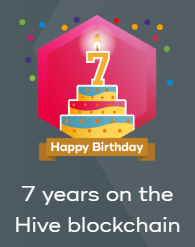Si eres de habla hispana, la versión en español es mejor para ti, debes hacer clic 👉 AQUÍ
When the Minority Becomes the Majority
In the intricate tapestry of Venezuelan politics, one figure dances in the air like a persistent ghost: the quarter. We are told that this fraction, barely an echo of the popular will, is the one that truly decides, that elects the president, that wields power. And in that assertion, in that apparent statistical truism, lies a paradox that tears at the logic and feelings of the majority.

AI Studio
How is it possible that a minority, in terms of raw numbers, becomes the leading voice of a nation? I invite you to look beyond the cold percentages, to immerse yourself in the experiences, in the micro-histories that construct this macro reality. It is the story of paralyzing fear, of hopelessness that invites abstention, of apathy sown in weariness. It is also the story of a system that, with mastery, has known how to manipulate democratic tools for its own benefit.
The “minority” in power is not just a statistical fact; It is a complex construct. It is the sum of an unwavering core vote, the efficiency of a mobilizing party machine, and the skill to discourage the participation of dissenters. It is the narrative of a country where the voice of three-quarters is diluted by inaction, silent protest, or forced exile.
This reflection leads us to question the true nature of democracy when numbers, the most fundamental of principles, are subverted by a power structure that redefines the word "majority." It is a mirror, perhaps, of other realities where true power resides in control, and not necessarily in consensus. A quarter—a number or a symbol of a distorted reality? A manipulated statistic where even those who have been buried or cremated can appear as voters.
In the intricate tapestry of Venezuelan politics, one figure dances in the air like a persistent ghost: the quarter. We are told that this fraction, barely an echo of the popular will, is the one that truly decides, that elects the president, that wields power. And in that assertion, in that apparent statistical truism, lies a paradox that tears at the logic and feelings of the majority.

AI Studio
How is it possible that a minority, in terms of raw numbers, becomes the leading voice of a nation? I invite you to look beyond the cold percentages, to immerse yourself in the experiences, in the micro-histories that construct this macro reality. It is the story of paralyzing fear, of hopelessness that invites abstention, of apathy sown in weariness. It is also the story of a system that, with mastery, has known how to manipulate democratic tools for its own benefit.
The “minority” in power is not just a statistical fact; It is a complex construct. It is the sum of an unwavering core vote, the efficiency of a mobilizing party machine, and the skill to discourage the participation of dissenters. It is the narrative of a country where the voice of three-quarters is diluted by inaction, silent protest, or forced exile.
This reflection leads us to question the true nature of democracy when numbers, the most fundamental of principles, are subverted by a power structure that redefines the word "majority." It is a mirror, perhaps, of other realities where true power resides in control, and not necessarily in consensus. A quarter—a number or a symbol of a distorted reality? A manipulated statistic where even those who have been buried or cremated can appear as voters.
Come and participate, there's still time. You can find all the information daily in the #Freewritehouse Community. Specifically, today's prompt post:
PROMPT: «minority»

Cover of the initiative.

Dedicated to all those writers who contribute, day by day, to making our planet a better world.


Cuando la minoría se vuelve mayoría
En el intrincado tapiz de la política venezolana, una cifra danza en el aire como un fantasma persistente: la cuarta parte. Se nos dice que esta fracción, apenas un eco de la voluntad popular, es la que verdaderamente decide, la que elige al presidente, la que ostenta el poder. Y en esa afirmación, en esa aparente obviedad estadística, yace una paradoja que desgarra la lógica y el sentir de la mayoría.

Studio IA
¿Cómo es posible que una minoría, en términos de números brutos, se convierta en la voz cantante de una nación? Les invito a mirar más allá de los porcentajes fríos, a sumergirnos en las vivencias, en las microhistorias que construyen esta realidad macro. Es la historia del miedo que paraliza, de la desesperanza que invita a la abstención, de la apatía que se siembra en la fatiga. Es también el relato de un sistema que, con maestría, ha sabido manipular las herramientas democráticas para su propio beneficio.
La “minoría” en el poder no es solo un dato estadístico; es una construcción compleja. Es la suma de un voto duro inquebrantable, la eficacia de una maquinaria partidista que moviliza y la habilidad para desincentivar la participación de quienes disienten. Es la narrativa de un país donde la voz de tres cuartas partes se diluye en la inacción, en la protesta silenciosa o en el exilio forzado.
La reflexión nos lleva a cuestionar la verdadera naturaleza de la democracia cuando el número, el más elemental de los principios, se ve subvertido por un entramado de poder que redefine la palabra “mayoría”. Es un espejo, quizás, de otras realidades donde el poder real reside en el control, y no necesariamente en el consenso. Una cuarta parte, ¿un número o un símbolo de una realidad distorsionada?, una estadística manipulada donde hasta quienes han sido enterrados o cremados pueden aparecer como votantes.
En el intrincado tapiz de la política venezolana, una cifra danza en el aire como un fantasma persistente: la cuarta parte. Se nos dice que esta fracción, apenas un eco de la voluntad popular, es la que verdaderamente decide, la que elige al presidente, la que ostenta el poder. Y en esa afirmación, en esa aparente obviedad estadística, yace una paradoja que desgarra la lógica y el sentir de la mayoría.

Studio IA
¿Cómo es posible que una minoría, en términos de números brutos, se convierta en la voz cantante de una nación? Les invito a mirar más allá de los porcentajes fríos, a sumergirnos en las vivencias, en las microhistorias que construyen esta realidad macro. Es la historia del miedo que paraliza, de la desesperanza que invita a la abstención, de la apatía que se siembra en la fatiga. Es también el relato de un sistema que, con maestría, ha sabido manipular las herramientas democráticas para su propio beneficio.
La “minoría” en el poder no es solo un dato estadístico; es una construcción compleja. Es la suma de un voto duro inquebrantable, la eficacia de una maquinaria partidista que moviliza y la habilidad para desincentivar la participación de quienes disienten. Es la narrativa de un país donde la voz de tres cuartas partes se diluye en la inacción, en la protesta silenciosa o en el exilio forzado.
La reflexión nos lleva a cuestionar la verdadera naturaleza de la democracia cuando el número, el más elemental de los principios, se ve subvertido por un entramado de poder que redefine la palabra “mayoría”. Es un espejo, quizás, de otras realidades donde el poder real reside en el control, y no necesariamente en el consenso. Una cuarta parte, ¿un número o un símbolo de una realidad distorsionada?, una estadística manipulada donde hasta quienes han sido enterrados o cremados pueden aparecer como votantes.
Ven y participa, aún estás a tiempo. Toda la información la podrás encontrar cada día en la Comunidad #Freewritehouse. Específicamente, el día de hoy, aquí la publicación del prompt:
PROMPT: «minoría»

Portada de la iniciativa.
Dedicado a todos aquellos que, día a día, con su arte, hacen del mundo un lugar mejor.

